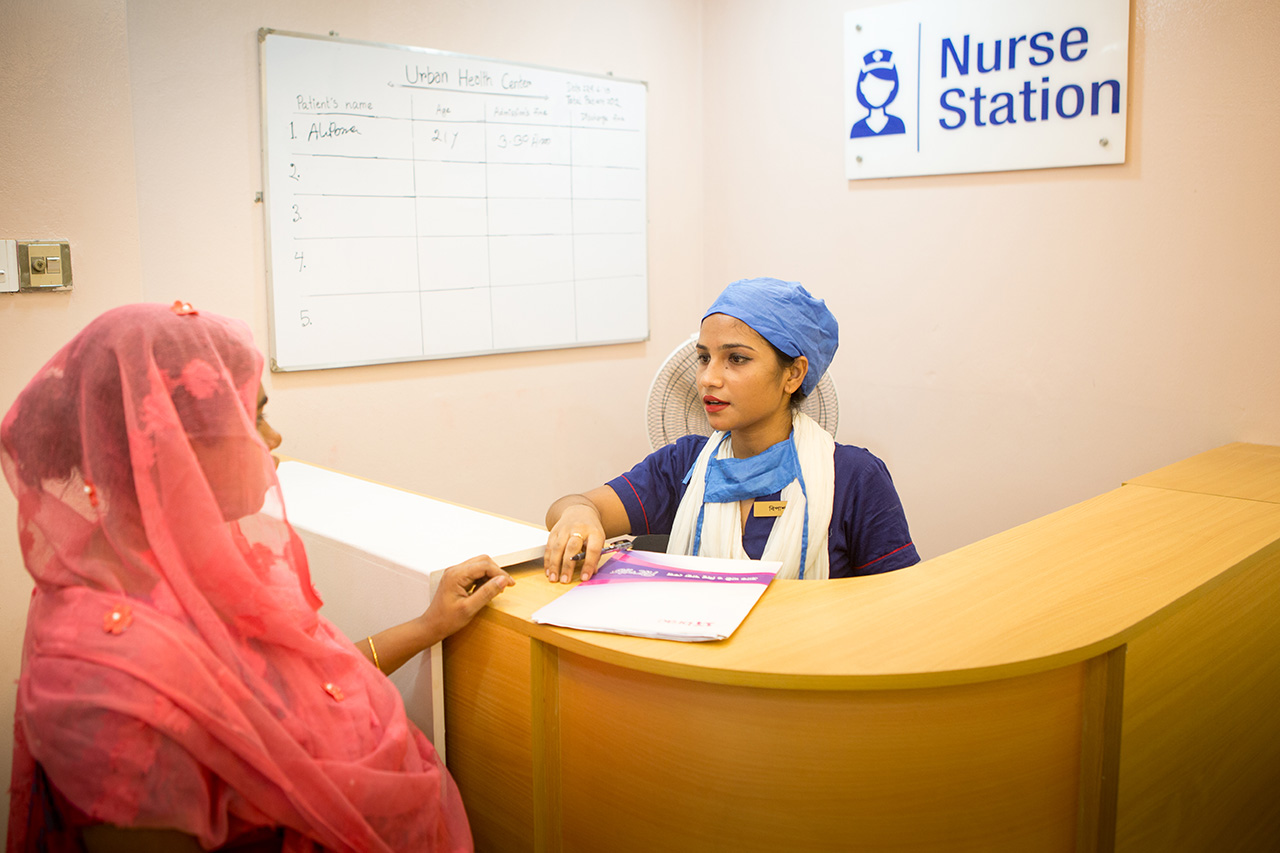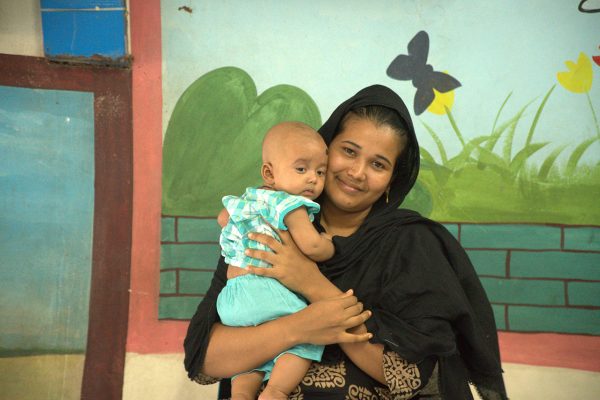Quality, affordable healthcare across the capital
Reading Time: 3 minutes
Healthcare costs are rapidly increasing, with approximately two-thirds being covered by out-of-pocket expenditure in Bangladesh. Up to five million people are pushed into poverty every year because of healthcare costs.
Bangladesh has made significant strides in health care in recent years, however, it now faces emerging challenges in health, with non-communicable diseases being one of them. According to WHO, in 2012, 59% of all deaths in the country attributed to non-communicable diseases. Excessive treatment costs stemming from failure of timely detection poses as a double burden.
BRAC has been working with maternal, child, and delivery care for the last 40 years. The initial target was to educate the community on different health issues and linking them with appropropriate health providers. Today, we are faced with increased incidence of non-communicable diseases, limitations in access of providers, and high costs of treatment. As such, we have realised the need to evolve our existing community health workers’ network to fight these challenges.
In light of the transition in the health sector pertaining to market requirements and health issues, we have expanded our services to make health centres as the community’s one-stop primary healthcare centre, so that patients can avail all kinds of primary care treatment. The transition focuses on a multi-pronged approach – a comprehensive line of services within the realm of primary healthcare. Using the right resources for service delivery, integrating relevant technology, and operating under all regulatory compliance in the health sector of Bangladesh has been our foremost priority. Urban health centres are fairly common in developing countries and is something we are interested to replicate and scale in cities across Bangladesh.
To provide quality primary healthcare services at affordable costs, BRAC Health Nutrition and Population Programme has recently launched six urban health centres in five locations in Dhaka city: Badda, Jatrabari, Kamrangir Char, Mirpur and Mohammadpur.
We first ensure that our clients get accurate information right at their doorsteps through our network of community health workers. The health workers bridge the gap between healthcare providers and communities by referring patients to institutional care, building an informal referral network that connects people with the formal health system.
Here are some services patients can expect at our urban health centres:
Out-patient doctor consultation: 40 doctors are available at the health centres throughout the week. Our health practitioners provide services related to medicine, ENT, gynae, and pediatrics, and are available from morning until evening. We are keen to ensure that patients receive extensive consultancy time and are treated with dignity and respect to create a positive clinical experience.

Our skilled para health professionals are always there to create a positive experience in our centres.
Pathology lab tests: Trained lab technicians perform laboratory tests. Reports are then endorsed and approved under the close supervision of a qualified pathologist. We understand that tests form a critical part of diagnosis, but can also be expensive for clients. Hence, we have priced our test 20-25% lower than the general market costs of diagnostics.
Ultrasonography and ECG: In addition to pathology lab services, the urban health centres also provide quality ultrasonography and ECG tests under the supervision of trained sonologists and doctors.

Ayesha Abed Delivery Unit: Every urban health centre has a dedicated corner for mothers, in memory of the late Ayesha Hasan Abed, whose invaluable role in the early days of BRAC enabled thousands of women to pursue entrepreneurship. The normal delivery service is provided by midwives under the supervision of doctors, with special care provided for patients requiring post-delivery and recovery support. There are separate breastfeeding rooms for mothers too.
Pharmacy: Counterfeit medicine is an emerging challenge across local markets. We address this by making quality and genuine medicine available in our centres. The drugs available at the health centres are directly sourced from 30 leading pharmaceutical companies.
Learn more about our healthcare services.
Saqif Nayeem Khan is a senior manager business development and partnerships for BRAC’s health, nutrition and population programme.
Ibtihaj Ahmed is a social media administrator for BRAC communications.





